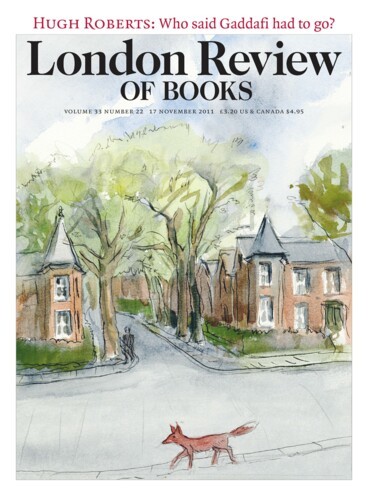A couple of decades ago I was having lunch with Imran Khan at an Italian restaurant in Knightsbridge. He was preoccupied with his approaching retirement from cricket. ‘People like you,’ he frowned, ‘have no idea what it is to be a sportsman. Our careers end in our thirties. We have to think of something new to do.’ Becoming a cricket commentator was obviously out, so I suggested that, given the absence of a serious film industry in Pakistan, he could raise money for a film institute. We could get directors from all over the world to visit and teach for a while. ‘But what would I do?’ he asked.
‘You could be an enabler or you could act. A film with you in it would be a surefire hit and help fund more avant-garde productions.’
He laughed at the thought. ‘But I can’t act at all.’ I pointed out that this didn’t stop the Bollywood stars. He was a tailor-made matinée idol. The idea was swiftly rejected.
It turned out, to my astonishment, that he was more interested in politics. I told him to steer clear. He nodded but was not convinced. I was wrong, and I’m glad he ignored my advice. Last month a huge political rally in Iqbal Park (better known by its old name of Minto Park) in the old city of Lahore stunned the country. At least half a million people mobilised by Imran’s political party, the Tehreek-e-Insaf (Movement for Justice), filled the park and continued to pour in even as it got dark. It was a disciplined gathering: there were no rows or stampedes or jostling to get closer to the platform. It was in this park that Jinnah announced the movement for a separate Muslim state in 1940 and it was here that Zulfiqar Ali Bhutto in 1971 and his daughter Benazir in 1986 launched their campaigns against the country’s military dictators.
This gathering was larger than any of those, and Imran was in confident mood. ‘I have a bone to pick with you Lahoris,’ he said. ‘It takes you a long time to arouse from your slumbers. Still when you do wake up you become an unchallengeable force.’ The Lahoris cheered. The crowd was a cross-section of Lahore’s population: ‘I welcome all of you,’ Imran said, ‘rickshaw-drivers, tonga-wallahs, workers, peasants, doctors, civil servants in disguise. We are here to create a new Pakistan.’ Zardari and the Sharif brothers were denounced as rogues who had looted the country. The limited programme announced at the rally included pledges to end corruption (though there was no criticism of the pervasive corruption in the armed forces and the civil service), restore public services, institute a strict tax regime and break with the servile, pro-US policy followed by successive regimes to make sure that ‘Aunt Clinton visits as an equal.’ Some liberals are nervous about what they see as the party’s ‘soft Islamism’, but the crowd in Lahore wasn’t particularly religious. Young women in jeans and T-shirts cheered just as loudly as those in hijabs.
When I met Imran in London a week or two before the rally, he told me it had taken 15 years of hard work to build this movement. Early meetings had been small, and he was mocked as an ingénu, but support for his party started to grow. ‘Young people began to set up branches of the movement all over the country quite spontaneously,’ he said. A recent US-sponsored opinion poll has found that support for him in the cities is running at 70 per cent. Could this be true? He was confident. ‘You’ll be surprised.’
Well, I am. His new book, Pakistan: A Personal History, gives a fairly straightforward explanation of his turn to politics, of the way he sees the country’s history and what needs to be changed.* ‘This is our last hope,’ a young woman said on television of the party’s bid for the next election. ‘If it fails we’re finished.’ One of the few victories of the turbulent 1960s anywhere in the world occurred when after a three-month struggle and the loss of many lives a mass insurrection toppled Pakistan’s dictatorship, paving the way for the country’s first democratic elections. Now, too, revolt is in the air. The Arab Spring, the Occupy movement and this huge popular assembly in Lahore: which will succeed? There is another small irony. As one former cricket captain is attempting to eliminate corruption in Pakistan, another is about to be sent to prison in Britain for spreading the disease.
Send Letters To:
The Editor
London Review of Books,
28 Little Russell Street
London, WC1A 2HN
letters@lrb.co.uk
Please include name, address, and a telephone number.

